Member Day Hearing Features Ideas on Reforming the Broken Budget Process
Last week, Chairman Jodey Arrington (R-TX), Ranking Member Brendan Boyle (D-PA), and House Budget Process Reform Task Force Chair Rudy Yakym (R-IN) held a Member Day Hearing to solicit ideas on how to reform Washington’s broken budget process. The Committee received testimony from 11 Members of Congress, including 10 off-Committee Members.
Word on the Street:
Chairman Jodey Arrington (R-TX) delivered his opening statements for the Member Day Hearing, underscoring how the budget process has been flawed and broken for the past 25 years. The Chairman spoke towards our need to reform mandatory spending and called for the unification of both parties to fix the budget process.
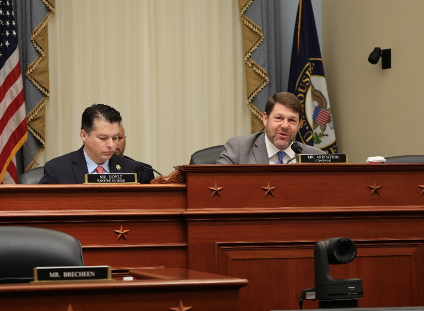
Click HERE to watch Chairman Arrington’s Opening Statement
Budget Process Reform Task Force Chair Rudy Yakym (R-IN) delivered opening statements highlighting how much the U.S. has changed in the 50 years since the Congressional Budget and Impoundment Control Act of 1974 was signed into law. He mentioned that Congress operates in a more partisan manner now and suggests that the inability to pass funding bills has led Congress to pass last minute continuing resolutions.
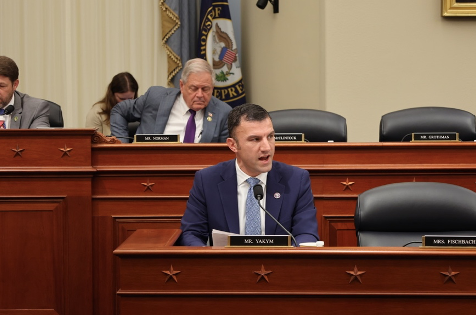
Click HERE to watch Rep. Yakym’s statement
Rep. Carlos Gimenez (R-FL) suggested that Congress look into the establishment of a panel that looks at the federal bureaucracy; provide analysis on costly Federal contracts; and reduce regulations to grow the economy and cut costs. He also urged lawmakers to provide additional oversight of Congressional Budget Office (CBO) scores, which the House Budget Committee has been working closely on with CBO in recent months.
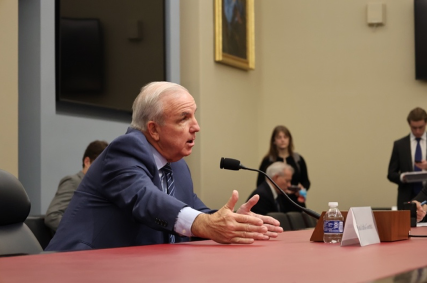
Click HERE to watch Rep. Gimenez’s statement
Rep. David Rouzer (R-NC) suggested changing the fiscal year to February 1, 2024 - January 31, 2025, and so forth, to allow more time for lawmakers to pass funding bills. He also urged lawmakers to ensure the validity and reliability of CBO’s findings. To increase accountability, Rep. Rouzer proposed that all votes on bills that increase annual spending by over $20 billion be subject to a subsequent vote of acknowledgment.
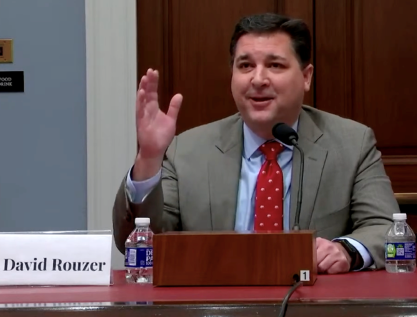
Click HERE to watch Rep. Rouzer’s statement
Rep. David Schweikert (R-AZ) highlighted that the main drivers of our out-of-control federal debt come from health care costs and interest rates. He also pointed out that Washington has a spending problem—not a revenue problem and underscored that it will take much more than saddling Americans with more taxes to improve our dire fiscal state.
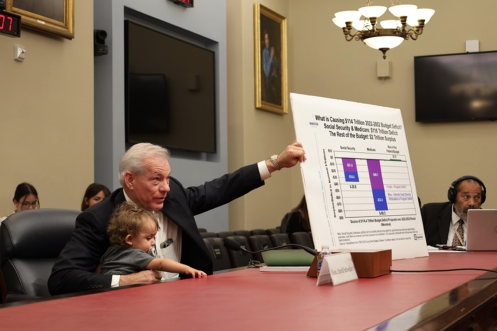
Click HERE to watch Rep. Schweikert’s statement
Rep William Timmons (R-SC) stated that our fiscal situation is the result of generations of politicians “kicking the can down the road.” He called for the creation of a bipartisan fiscal commission to focus on pragmatic, long-term solutions to our nation’s debt crisis—something Chairman Arrington and Budget Committee Members have been fighting for as well.
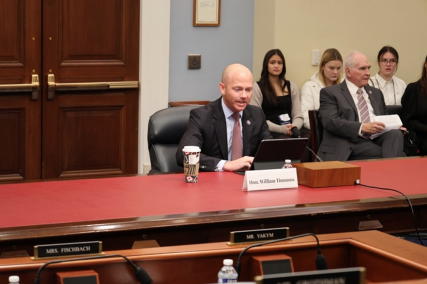
Click HERE to watch Rep. Timmons’ statement
Rep. Kat Cammack (R-FL) proposed creating a national debt repayment plan in which principal payments on the debt are pegged to a percentage of GDP to allow payments to flow with the cyclical nature of the economy. She also suggested realigning the budget process to start from zero (zero-based budgeting) and advocated for including CBO scores when rules are implemented - not when they come off the books. The Congresswoman also urged lawmakers to pass a balanced budget amendment. The House Budget Committee has made efforts towards this by passing our Reverse the Curse Budget Blueprint that balances the budget in 1o years.
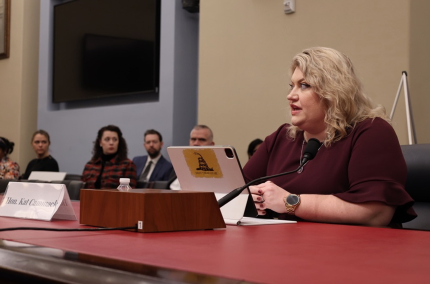
Click HERE to watch Rep. Cammack’s statement
Rep. Zach Nunn (R-IA) highlighted H.J.Res.12, “Proposing a Balanced Budget Amendment to the Constitution of the United States.” This bill:
- Prohibits total outlays to exceed total receipts for the fiscal year unless Congress authorizes the excess by a ? vote in the House and Senate.
- Requires a ? vote from the House and Senate to increase the debt limit.
- Prohibits a bill to increase revenue from becoming law unless approved by a majority in each chamber.
- Requires the President to submit a budget where outlays do not exceed receipts.
- Allows Congress to waive the balanced budget requirements due to a declaration of war.
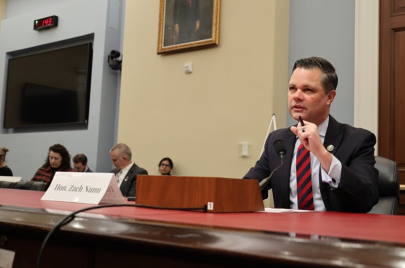
Click HERE to watch Rep. Nunn’s statement
Rep. Brian Mast (R-FL) argued that the government spends too much on emergency disaster supplemental funding and suggested the Budget Committee address this issue by looking into the creation of a 13th appropriations bill for disaster supplemental appropriations.
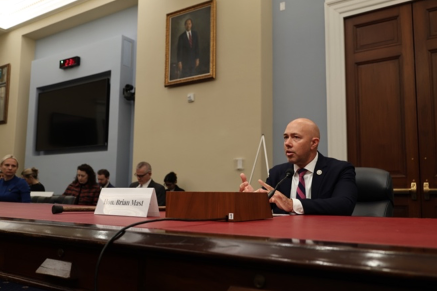
Click HERE to watch Rep. Mast’s statement
Rep. Victoria Spartz (R-IN) sounded the alarm on our rising interest rates and slowing economy, pointing out that this situation will result in even more spending wasted on paying interest on the national debt. She additionally voiced her disapproval for raising taxes on the middle class and encouraged the Budget Committee to create a bipartisan fiscal commission to find solutions to our worsening fiscal state.
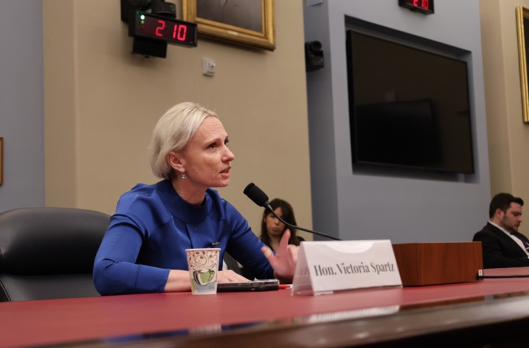
Click HERE to watch Rep. Spartz’s statement
Rep. Mike Kelly (R-PA) criticized the lack of political will displayed by past leaders to reform the budget process. The Congressman also drew attention to the unfortunate dichotomy between how the private industry treats debt and how the Federal government treats debt.
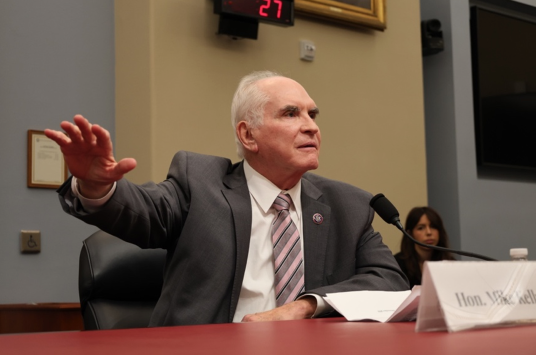
Click HERE to watch Rep. Kelly’s statement
Rep. Matt Rosendale (R-MT) called for Congress to follow the Congressional Budget Act of 1974. He also highlighted the bipartisan nature of our budget problems, citing that 86 percent of proposed spending reductions were rejected on the House floor by Republicans. Finally, he sounded the alarm on the need to address mandatory, or “autopilot,” spending.
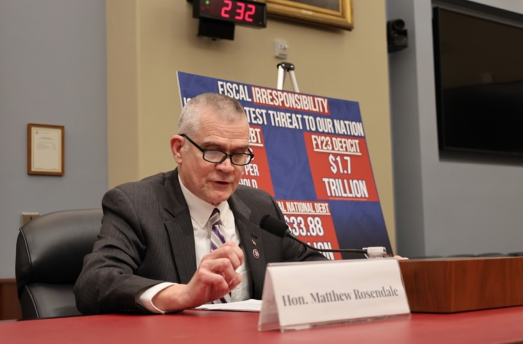
Click HERE to watch Rep. Rosendale’s statement
Rep. Bob Good (R-VA), a member of the House Budget Committee, stated that the debt and border crisis are our nation’s two greatest threats. He proposed a “nickel plan” - reduce the budget by a nickel for every dollar spent; this provision would balance the budget in five years. He also proposed a rule that, if a budget is not passed by its statutory deadline of April 1, Congress should remain in Washington D.C. until it is, and that a budget must be marked up within two months of the President’s budget.
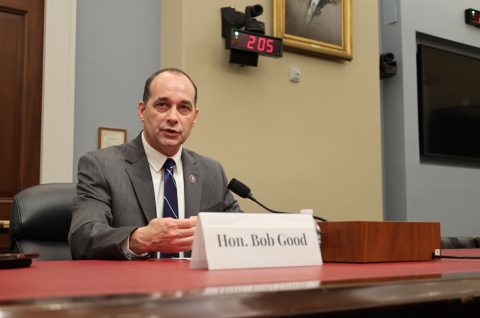
Click HERE to watch Rep. Good’s statement
The Bottom Line:
The current budget process is administered in five key stages in accordance with the Congressional Budget and Impoundment Control Act of 1974. The Congressional Budget Act demands that following the President’s budget submission to Congress, the House and Senate committees hold hearings to report a concurrent resolution on the budget, all to be completed prior to passage of funding for the federal government: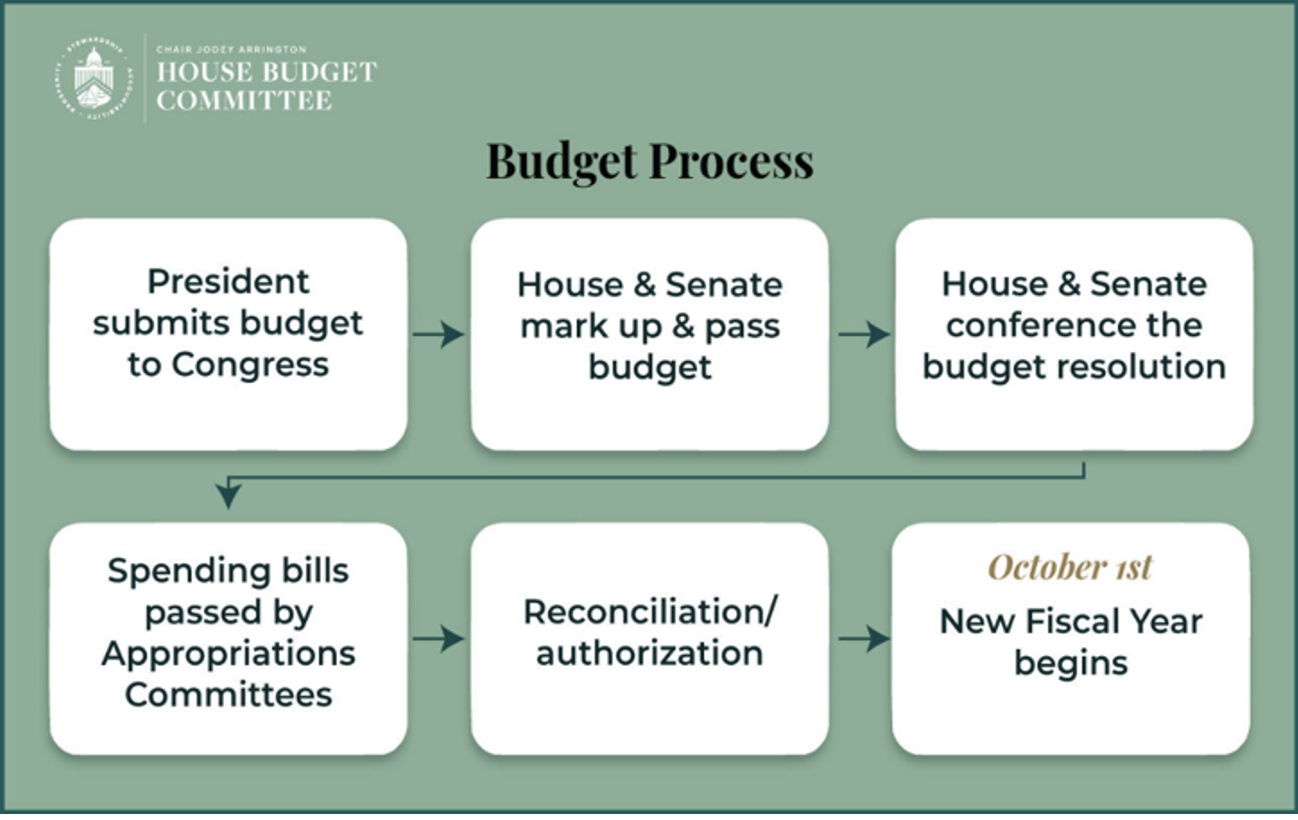
However, Congress’ failure to adhere to the statutorily required budget process—coupled with the disregard for parliamentary mechanisms that would otherwise delay or halt congressional overspend—has disemboweled many past attempts to right-size our federal bureaucracy.
To better guide the House Budget Committee’s forthcoming recommendations on how best to reform Congress’ broken budget process, Chairman Arrington (R-TX) and Representative Yakym (R-IN) formally launched the Budget Process Reform Task Force. Key task force initiatives have included examining ways to increase transparency, accountability, and responsibility in fiscal decision-making within Congress, while also working to establish a fiscal commission that will educate the public about our looming fiscal crisis and address the drivers of our debt.
House Budget Committee’s Member Day hearing furthered this initiative by providing a venue for off-committee members to offer valuable insight on how we as a Conference will start anew for the 2024 fiscal year—and for many fiscal years to come.
Chairman Arrington and Representative Yakym want to express their immense gratitude to all members who testified and submitted statements for the record. The House Budget Committee will continue to fight to reverse the curse of our historic, skyrocketing debt.


